Withnail and I: The ultimate cult film?
After barely making a ripple when it was first released, Withnail and I has come to be seen as one of the best British films ever made.
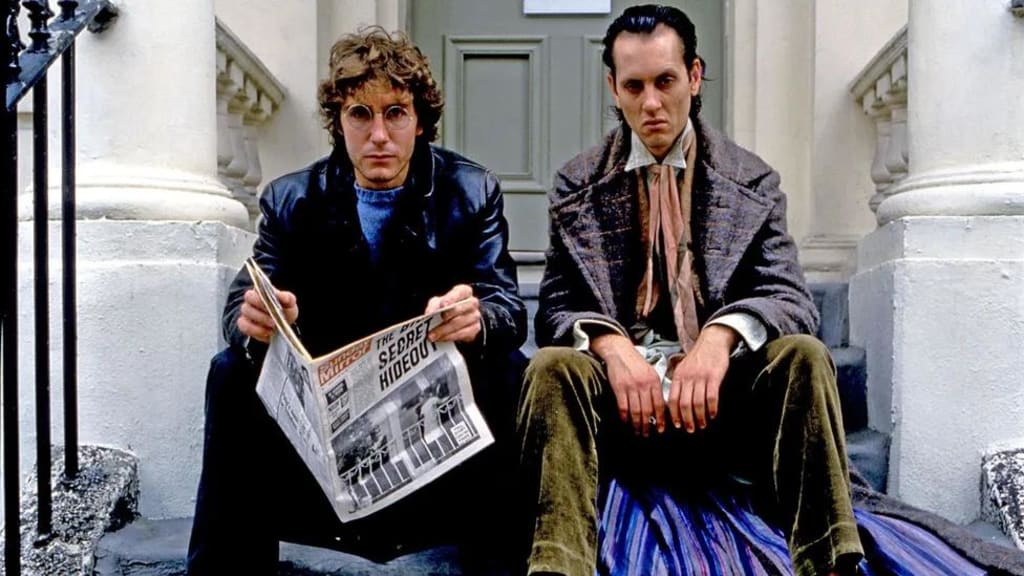
Withnail and I wasn’t a box-office sensation when it came out in 1987. “I remember actor friends really liking it,” one of the film’s stars, Paul McGann, tells BBC Culture. “Reviewers not so much. It wasn’t given a big release. It played in a handful of London venues and then it was gone.”
In the years that followed, though, Withnail and I came to define the term ‘cult movie’. A hilarious, melancholy tragicomedy, it is still obscure enough for its fervent fans to feel as if they are members of an exclusive club. But it keeps cropping up on critics’ lists of the best British films ever made, and it was placed at number 24 in BBC Culture’s poll of cinema’s funniest ever comedies. The script, in particular, is often hailed as a work of comic genius. McGann’s co-star, Richard E Grant, has been cheering up Twitter since mid-March by posting daily ‘Withnail and Isolation’ videos of quotes from the film. And McGann himself is reminded of such quotes on a regular basis. “It’s no exaggeration to say that I’ve probably had every single line of it said back to me,” he says. “Including the French and Latin ones.”
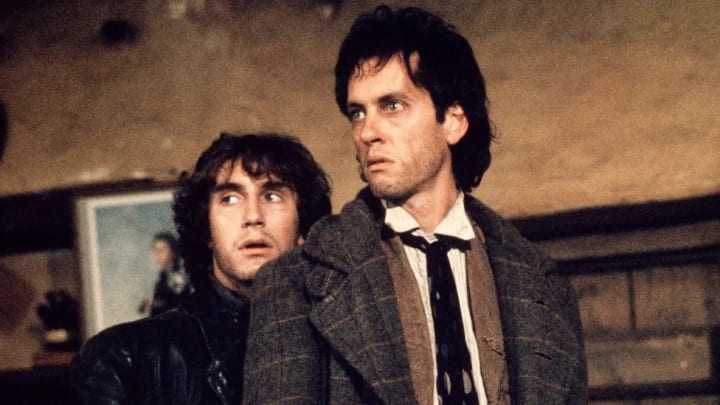
As revered as Withnail and I has become, it was never destined to be a blockbuster. Neither McGann nor Grant had been in a film before, and while its writer-director, Bruce Robinson, had been Oscar-nominated for his screenplay for The Killing Fields, this was his first shot at directing. Another issue was the almost total absence of a plot.
There are no explosions, no love interests, no plot twists, and no happy ending. But somehow the film is gripping from start to finish
Based on Robinson’s own experiences, the film introduces two struggling young actors who share a freezing and frighteningly unsanitary flat in Camden Town in London in 1969. McGann plays the Robinson substitute, Marwood (although his name is never mentioned), who muses that “we are indeed drifting into the arena of the unwell”. Grant co-stars as his Byronic flatmate, Withnail, an embittered alcoholic who stalks around in a tweed overcoat, firing scabrous insults at a world which has thus far neglected to hand him the role of Hamlet. After they’ve been visited by a drug-dealing hippy, Danny (Ralph Brown), they persuade Withnail’s bibulous Uncle Monty (Richard Griffiths) to let them stay in his tumbledown holiday cottage in the Lake District. They cook a chicken, and they go to the pub. (“It was like walking into a lung.”) And that’s about it. There are no explosions, no love interests, no plot twists, and no happy ending. No one evolves as a person, or achieves anything momentous. But somehow the film is gripping from start to finish. “It’s really the most cunning of screenplays,” says McGann.
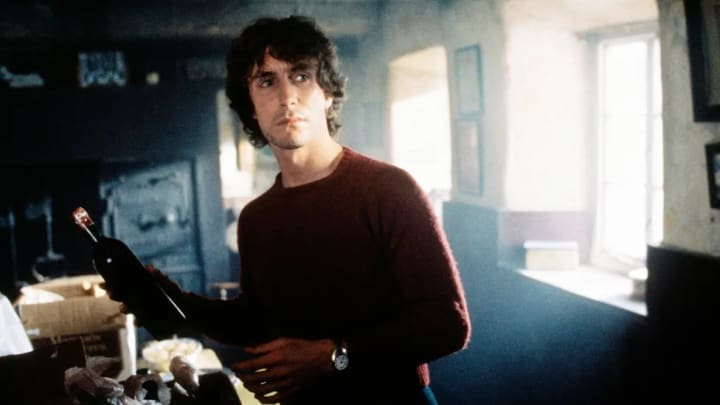
The screenplay in question found its way to HandMade Films, the company co-founded by George Harrison, the ex-Beatle. The company’s head of production, Ray Cooper, was the first person there to read Robinson’s script. “It was such a gem,” says Cooper, on the phone from his home in Germany. “I knew it was right up George’s street because he was part of that era, the end of the 1960s, and it had the humour that he adored: very, very English, extremely acerbic and edgy and wonderful.”
Against the odds
Harrison’s business partner, Denis O’Brien, wasn’t convinced. Harrison was keen to finance offbeat British projects, but O’Brien had his sights set on big-budget Hollywood-style event movies. “After two weeks he wanted to close the film down,” says Cooper. “As an American, he didn’t really get the point of it, and he didn’t get the English humour. And he’d started to see some of the rushes, and he thought it was too dark – literally too dark. I didn’t do this very often, but on this occasion I went to George and said, ‘That film that we both love, I think Denis wants to abandon it, but I beg you, will you help me, will you intercede on my behalf?’ And George said, ‘Yeah, of course. I want to see that film, so we’ve got to make it.’ It was as naive, innocent, simple and beautiful as that.”
Once Withnail and I was released on video, people did start talking about it: specifically, students
And so Withnail and I was completed – and Robinson was pleased with the resulting “masterpiece”, as he called it. “As he grew more and more upbeat after seeing dailies I knew it must be good,” says McGann. “I was sure people would enjoy it – we did, after all – and probably imagined it would be an arthouse hit or something.”
That didn’t quite happen. “There wasn’t a great deal of money for distribution or advertising,” says Cooper. “It was the kind of film you wanted people to talk about, but it wasn’t in cinemas long enough for people to start talking. That was a tragedy.” But once Withnail and I was released on video, people did start talking about it: specifically, students. “It’s a bit like vinyl records coming back again,” Cooper says. “Young people discover good things. Thank God for youth!”
Denis O’Brien of HandMade Films nearly shut down the film during production, claiming that there were no ‘discernible jokes’ and it was badly lit (Credit: Alamy)
Denis O’Brien of HandMade Films nearly shut down the film during production, claiming that there were no ‘discernible jokes’ and it was badly lit (Credit: Alamy)
According to Ralph Brown in Very Naughty Boys, Robert Sellers’ history of HandMade Films, copies were “passed from hand to hand in student refectories and halls of residence”. Robinson said something similar when he was interviewed for An Accidental Studio, a documentary about HandMade. “It became a rite of passage. You had to go to university, get pissed, eat a curry and watch Withnail and I. Very weird.”
Well... not that weird. The film might not have been what cinema audiences were after, but at home, or in college accommodation, you could keep rewinding it and glorying in the magnificent performances and dialogue. More significantly, Withnail and I may well be the ultimate film about student life, even though the characters aren’t students.
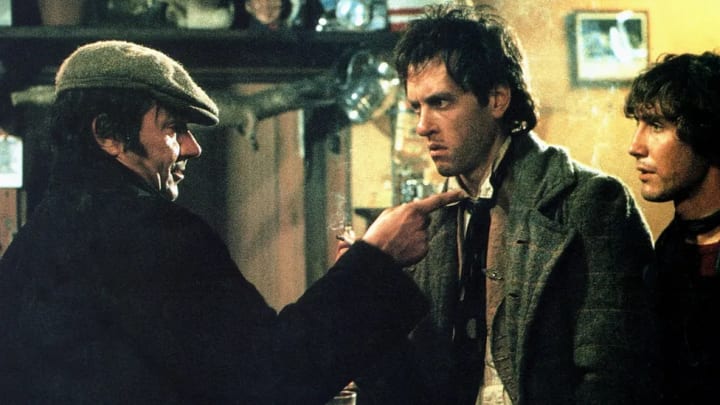
“I remember it being a hugely important film when I was at university from 1991 to 1994,” says Paul Elliott, head of film and media production at the University of Worcester. “This was before student loans, when students where still very much like the characters. The coolness of their poverty somehow allowed us to put up with ours.”
Sure enough, while Withnail and I is set in the 1960s – “the greatest decade in the history of mankind”, as Danny puts it – it certainly didn’t feel like a period piece to students in the 1990s. British students, at least. A million miles from the freewheeling likes of US movie National Lampoon’s Animal House, Robinson’s film captured the toxic dinginess of further education at that time. “Withnail and Marwood live the clichéd life of superannuated students,” says Justin Smith, the author of Withnail and Us, Cult Films and Film Cults in British Cinema. “They’re penniless, hard-drinking, and drug-infested. The growing squalor of their surroundings is something beyond their control and for which they claim no responsibility. I think that scenario is wonderfully recognisable to most students.”
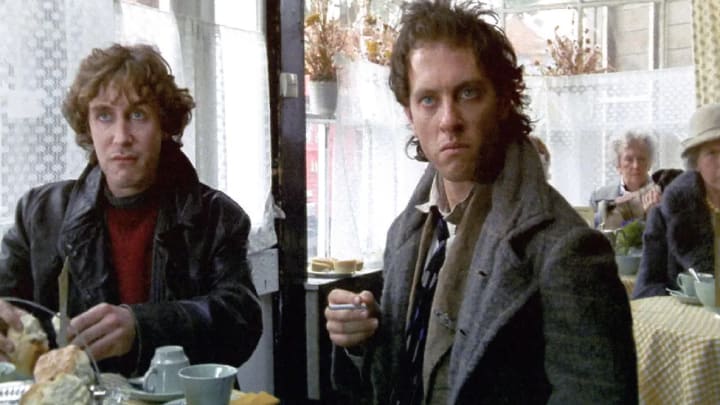
The “hard-drinking” part of that scenario can’t be overstated. The film’s most celebrated line may be Withnail’s war cry in a Penrith tea shop: “We want the finest wines available to humanity! We want them here and we want them now!” And alcohol gushes so copiously through the story that a Withnail and I drinking game was inevitable. Foolhardy participants match the characters beverage for beverage as they watch, thus imbibing dangerous quantities of wine, beer, cider, sherry, Scotch and gin, plus – if they’re being purist about it – a swig of lighter fluid. One of the production’s ironies is that Grant is a teetotaller who is allergic to alcohol, and the only time he ever got drunk was under Robinson’s supervision as he prepared for the role. All the same, he went on to deliver one of the most accurate portrayals of a drunkard ever filmed.
As uproarious as the boozy scenes are, the characters eventually realise that they can’t drink their way through their problems forever. “We’ve all been that age,” says Kim Leggatt, the co-director of An Accidental Studio. “We’ve all had to grow up at some point and get real. But getting real comes with fear. That is, can we do it, can we succeed at life or are we going to fail? Are we going to get left behind and become a casualty? What then? That for me is what Withnail and I taps into.”
As McGann says, it’s a cunning screenplay. Nothing much happens in it, and there is no reason why Withnail and Marwood shouldn’t stay in touch, but when we see Marwood, with his flowing curls cut short, walking away from Withnail in the rain so that he can take the lead role in a play, we feel as if we’ve been on an epic adventure, and we’re now witnessing the death of a relationship and an era. “The pathos of the ending reinforces the peculiar poignancy of student friendships,” says Smith, “at once contingent and intimate, transient and unforgettable.”
Once you’re an adult, perhaps moored by a family, a job and a mortgage, Withnail And I reminds you just how poor, hungry, hungover, and disgustingly unhygienic you were in your younger days. But it also reminds you how precious and brief those days were. It’s no wonder that when the film finishes, you have the urge to rewind the video, or to click on the streaming link, and drift into the arena of the unwell yet again.
About the Creator
Cindy Dory
When you think, act like a wise man; but when you speak, act like a common man.






Comments
There are no comments for this story
Be the first to respond and start the conversation.